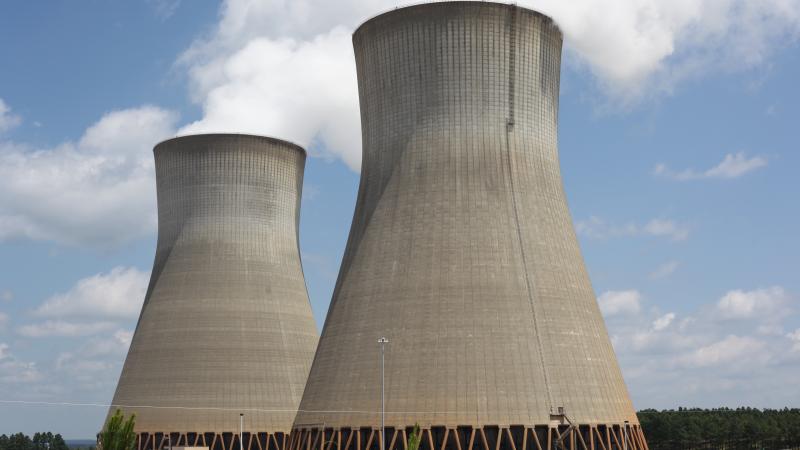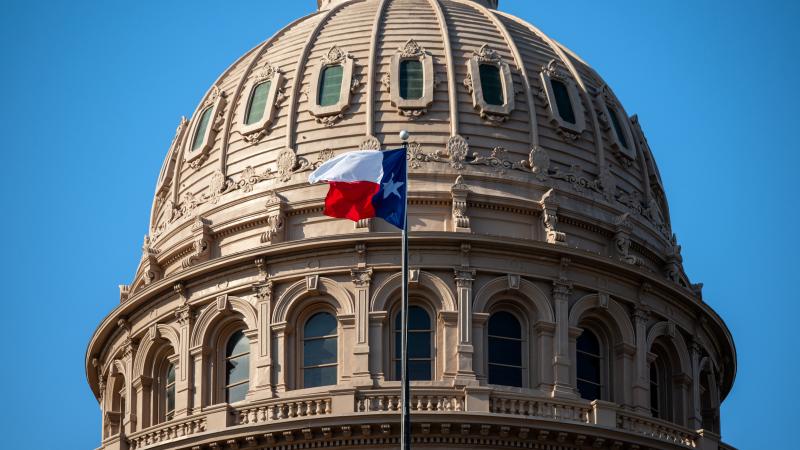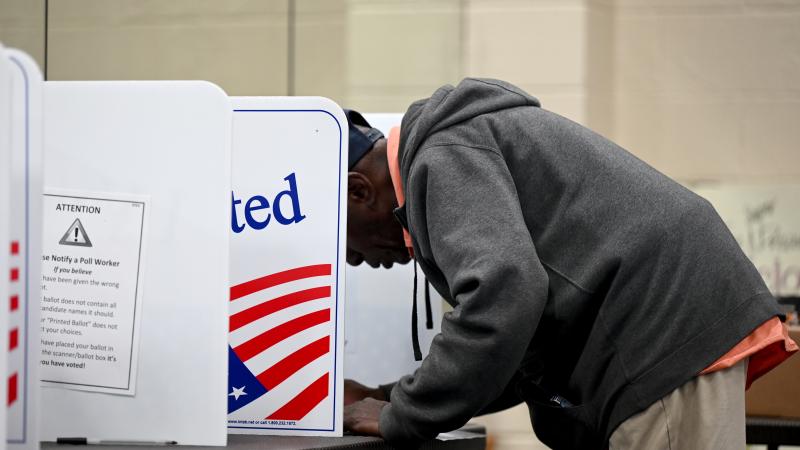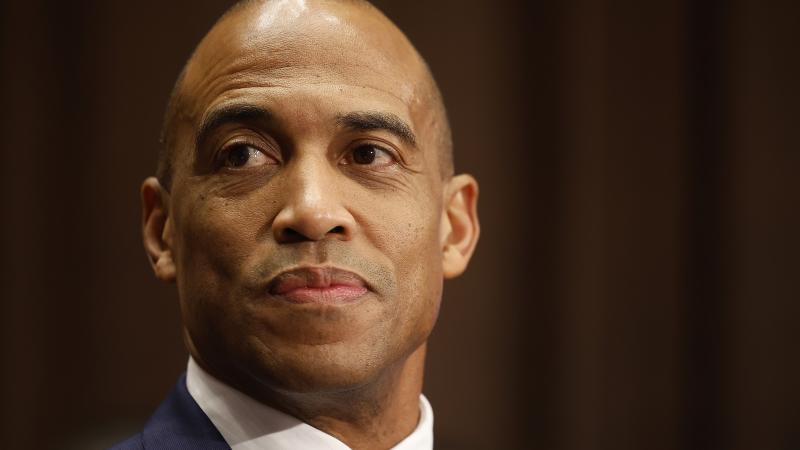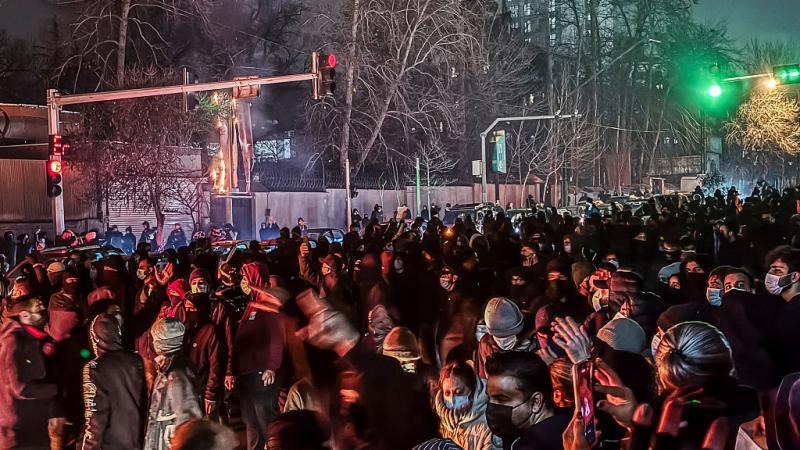Bans on gas stoves come back as Democratic cities and states continue war on gas appliances
The Biden administration tried and failed to enact a federal ban on gas stoves, and then denied the plans, convincing media "fact-checkers" to call it a "right-wing conspiracy." A federal court shot down Berkeley's ban on natural gas hookups, but undaunted, the movement to ban gas stoves lives on with "creative" laws that may avoid the legal pitfalls that killed Berkeley's law.
A new law went into effect in Colorado earlier this month requiring health warning labels on gas stoves, similar to those placed on cigarette packages. It’s one example of multiple efforts, primarily in blue states, to stop consumers from using gas-powered appliances in their homes.
After a Biden administration official in 2023 alluded to the possibility of a ban on gas stoves in the name of public health, legacy media outlets produced a number of “fact checks” insisting the Biden administration wasn’t going to ban gas stoves. They claimed the whole idea was just a "right-wing conspiracy."
Conveniently, most of the "fact checks" ignored the many local and state efforts in Democratic strongholds to accomplish the same goal. Time Magazine published a January 2023 "fact check" calling Republican opposition to such bans on a state-level a "right-wing culture war," comparable to "family values and religion."
According to Time, "Florida Gov. Ron DeSantis pushed back against the notion that Republicans are the ones engaging in culture war over gas stoves." During a speech, the Republican told supporters that Democrats and the media are trying to stoke the issue. “They want to do it, I mean, let’s be honest,” DeSantis said of the calls to ban gas-fueled stoves. “You start to see the narrative kick into gear, CNN segments saying how it’s causing asthma in kids. They start propagating the narrative.”
“The whole campaign is just an attempt to ban fossil fuels at the end of the day. So it's just kind of one plank in a larger strategy,” Energy analyst David Blackmon, author of the “Energy Transition Absuridities” Substack, told Just the News.
State senator: "Only fair to warn people"
Colorado State Sen. Cathy Kipp, a Democrat who co-sponsored the legislation, told Canary Media — an activist publication that receives funding from anti-fossil fuel groups — that “it’s only fair to warn people” that gas stoves might have health impacts.
“Like other gas-burning appliances and gasoline-burning cars, gas ranges spew noxious compounds such as carbon monoxide and nitrogen oxides,” Canary Media reported.
Under the law, a warning label must be affixed to gas stoves, warning consumers that they need to “understand the air-quality implications of having an indoor gas stove.” Using a link or QR code, the labels direct consumers to a state website that tries to convince buyers the appliance will possibly kill them or cause illnesses.
The information on the website relies primarily on federal government websites, including the Environmental Protection Agency and the Centers for Disease Control and Prevention, concerning potential health impacts from poor indoor air quality. However, there is no scientific consensus supporting such claims.
Anti-gas activists have regularly touted studies that found potential health risks from using stoves powered by fossil fuels, only to ignore flaws in those studies or the other studies that found no such link. In 2020, UCLA researchers produced a report claiming that gas stoves pose risks of respiratory illness, cardiovascular diseases, and premature death, especially among children, the elderly and low-income renters.
However, a study in 2023 by the California Restaurant Association, which lobbied against bans on natural gas hookups, found several issues with the UCLA report that led to flawed comparisons. “Had the UCLA Report made the correct comparisons, it would have concluded that there are no adverse health impacts from indoor use of natural gas appliances,” the study stated.
The UCLA study was funded by the Sierra Club, which has received $1 billion through Bloomberg Philanthropies. That money came from billionaire Bloomberg as part of a campaign called “Beyond Carbon,” which seeks to stop consumers from accessing energy from fossil fuels.
No significant association with asthma, but plenty of political ties
The controversy over a federal ban on gas stoves by the Biden administration followed the publication of a study by the Rocky Mountain Institute (RMI), which found that 12% of current childhood asthma cases in the US can be attributed to gas stove use.
Less than a month after the RMI study was published, Bloomberg News interviewed Consumer Public Safety Commissioner Richard Trumka Jr. about the alleged health impacts from gas stoves, asking if the commission would take action. Trumka told Bloomberg that “products that can’t be made safe can be banned.”
Critics of RMI’s gas stove study argue that the quality of the data it used was poor because it didn’t factor in the findings of a 2013 study by the International Study of Asthma and Allergies, which is considered the most comprehensive global study on the topic to date.
Last year, a major study published in the renowned medical journal The Lancet conducted an extensive meta-analysis of the health risks — meaning an examination of scientific literature to determine overall trends in the findings of multiple studies on the topic — from using gas stoves compared to electricity and other fuels. The Lancet study found no significant association between natural gas and respiratory illnesses such as asthma. It even found a lower risk of bronchitis compared to the use of electric stoves.
The Colorado website that consumers will be directed to by the warning labels makes no mention of these studies, instead presenting health consequences as a foregone conclusion.
“It's strictly a political campaign with a political strategy, and they believe this is a winning issue,” Blackmon said.
Beyond Berkeley: The push to ban gas stoves is back
In 2020, Berkeley, California, became the first city in the U.S. to ban natural gas hookups in new construction. The California Restaurant Association sued the city, arguing the ban was preempted by federal law. Ultimately, federal courts agreed, and the law was never allowed to go into effect.
However, according to the Grist, a publication that also receives funding from several anti-fossil fuel activist groups, some cities and states are looking for “creative” ways to sidestep the legal challenges that killed Berkeley’s anti-stove laws, which include emissions targets, building codes, and limits on indoor air pollution.
In July, a federal judge ruled that a New York law banning natural gas connections in new homes and buildings doesn’t conflict with federal law. A coalition of building and trade associations wrote to U.S. Attorney General Pam Bondi in June, asking her to file legal challenges to the law.
"The gas ban violates core constitutional principles of interstate commerce by attempting to dictate national energy usage through state-level restrictions. It burdens domestic energy production, raises costs on middle-class homeowners, and compromises energy reliability and economic freedom," the coalition wrote in their letter.
Despite a large body of research disputing claims that gas stoves pose significant health risks to consumers, activists are looking for avenues all across the U.S. to stop people from using the appliances. While the Biden administration failed to enact a federal ban on gas stoves, these local and state efforts may prove successful.
The Facts Inside Our Reporter's Notebook
Links
- new law went into effect in Colorado
- primarily in blue states
- ban on gas stoves
- fact checks
- Energy Transition Absuridities
- receives funding from anti-fossil fuel groups
- Canary Media reported
- possibly kill them or cause illnesses
- UCLA researchers produced a report
- study in 2023 by the California Restaurant Association
- Beyond Carbon
- study by the Rocky Mountain Institute
- accused of receiving funding
- Bloomberg interviewed
- 2013 by the International Study of Asthma and Allergies
- most comprehensive global study
- major study
- first city in the U.S. to ban natural gas hookups
- federal courts agreed
- according to the Grist
- several anti-fossil fuel activist groups
- federal judge ruled
- coalition wrote in their letter

